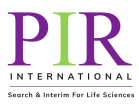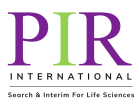BioInvestors First Edition
Welcome to BioInvestors (Part 2). This is PIR International’s panel with members from the global life science investor community aimed at sharing insights and reflections, provoking thought and asking questions about the life science and healthcare sector at large.
The response of the life sciences sector to the COVID-19 crisis has been extraordinary; its collaboration, determination and agility to provide solutions to get us out of this global crisis is unprecedented. This has brought renewed impetus to investment in companies involved in healthcare and COVID-19 related treatments. In particular diagnostics, the prevention and treatment of infectious diseases, digital health and telemedicine, all historically underinvested and unvalued markets.
PIR International is excited to see the sector continue to flourish in 2021 after a record-breaking investment year, and have engaged with respected healthcare investors, across the US, UK, Europe and Asia, to understand what the investment landscape looks like post COVID-19 and what investors will be looking for in 2021.
For the first edition of BioInvestors, we are pleased to be joined by prolific expert investors:
- Hakan Goker, SVP Healthcare, M-Ventures (https://www.m-ventures.com/)
- Stefan Luzi, Partner, Gilde Healthcare (https://gildehealthcare.com/)
- Isabel Fox, Co-Managing Partner, Luminous Ventures (https://luminous.vc/)
- Niall O’Donnell, Managing Director, RiverVest Venture Partners (https://www.rivervest.com/)
PIR International:
What are the key learnings from the last 12 months of a pandemic the investor community and wider life science sector should take on board for the future?
Hakan Goker, M-Ventures
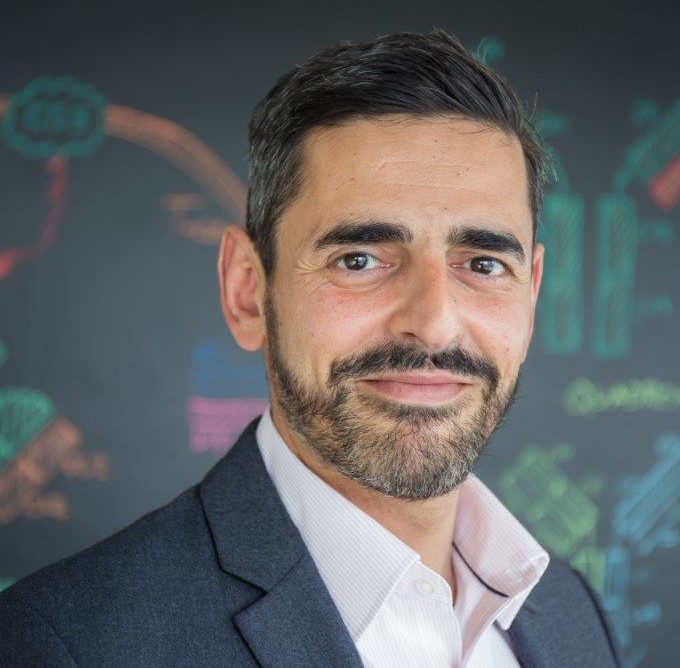
- Remote working: “It is fair to say that we all had to ‘learn’ to truly work remotely with an absolute dependence on video conferencing platforms, text messaging and traditional phone calls. This also brought up the importance of communicating clearly and succinctly which perhaps most of us have not truly applied in face to face meetings before.”
- Importance of existing networks: “Existing networks and long term business relationships took a forefront in all activities, from new investments, to board discussions, to M&A/Licensing activities, and more so in recruitment. The trust factor usually built through in-person meetings, had to be shifted to online ones. Existing relationships enabled faster processes, as we saw internally on our portfolio with the Artios Pharma/ Merck and Ribometrix/Genentech collaborations being executed at historically shortest timelines.”
- Learning to pivot fast: “Many companies that kept agile decision making have gone through the initial stages of the pandemic with minimal impact; learning to initiate parallel activities in various geographies to mitigate lock down risks, ensuring financing potential delays before they arose, and changing clinical plans to adapt to the requirements of the trial centres and principal investigators.”
- “Overall, both the investor community and the sector at large learned to be more flexible and move faster at times of challenge that will be here to stay for the coming years.”
Stefan Luzi, Partner, Gilde Healthcare
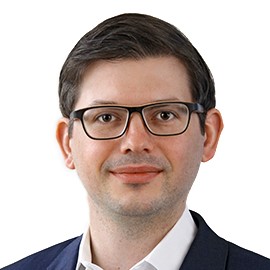
“Reflecting on the fact that travel and physical meetings have not been possible to a large extent, and although this has varied from country to country, it has completely changed the way that we have been operating. There have been some positive impacts including the decrease in travel time and cost, and people have become more versed in digital meetings which has led to a very rich deal flow in my experience. At Gilde Healthcare, we have interacted with many companies and 2020 has been a record year in terms of deal flow. We have also been able to run diligence processes quickly, jumping on Zoom calls with KOLs which generally seem to be better reachable these days. This change has led to a very fast process which is of benefit to the companies we look at as well. I believe that the same has been true for M&A and licensing processes, IPOs and SPACs because the pharma M&A and BD&L departments, investment bankers and public investors all seem to have embraced this change. Next to a favourable market sentiment, this digital change might be part of the reason why we have seen so many IPOs right now and so many exciting pharma deals. I think that the last year has had a positive effect on increasing the momentum in deal making across all segments.
The take-away for me is that you can be in front of your computer screen in your home office, however there is also a downside when talking to many people who sometimes are feeling a bit fatigued with all of the Zooming and therefore there is a risk of lower quality interactions. For me physical meetings are still superior in terms of the non-verbal interactions and in terms of relationship building. A negative aspect of the last year has been conferences being virtual rather than physical and also not being able to meet management teams on site. I miss physically attending conferences, just being there, bumping into people, having the informal discussions, and virtual conferences just don’t allow for this. For investors it is often more interesting to talk to fellow investors or industry veterans at these conferences in order to catch up on the latest industry dynamics rather than discussing 100 different start-ups, and this element has gone away. I feel that many fellow investors are less interested in attending virtual conferences because frankly if you like a company you can just set up your own Zoom call, so it defies the purpose.
I believe it is important that in a very busy schedule where people have full days packed with multiple Zoom calls, to put in breaks and take time to breathe and think. I have also seen the benefits of planning informal meetings to catch up with your network to stay on the pulse of the industry. Otherwise, there is a risk that you are too focused on processes and lose sight of the bigger picture. In my opinion, the only way out of digital fatigue is to plan Zoom coffee catch up meetings and reach out to people you have not been talking to for a while to just talk about general topics in an informal way. Of course it is not the same as a physical interaction, but at least it is something.”
Isabel Fox, Luminous Ventures
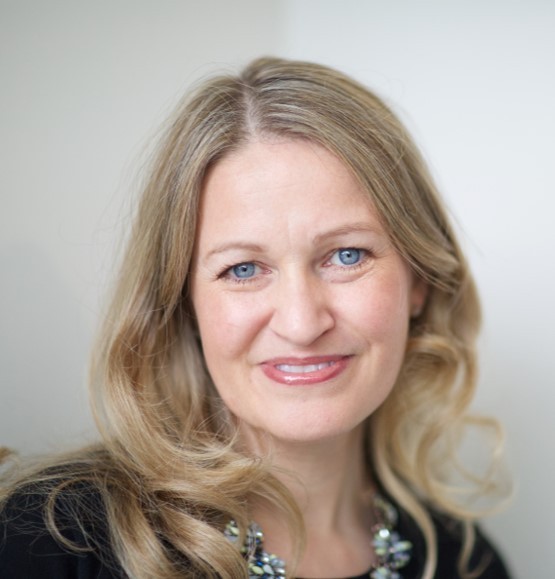
“I hope that it will change the way we do things; we have an environment to protect and talking for myself there are probably a number of flights I have taken for a conference or one meeting which I now question if they were needed. I reflect on the conferences we attend and I miss the networking, but we can now get the content online and watch it on a zoom and attend virtual pop-ins etc so efficiently. I really hope that we will think twice about what is important. My personal plan is to take fewer trips a year that are vital, to reduce travel down and save the environment. I do not see us ever fully going back to the office. There are cases like in life sciences, for people with labs, and other jobs that will still require office space and for some people having a space in an office to go to is important for getting out of the home. I am certain that things will not change back to the way they were. I don’t think that if we have not met a Founder we will not be doing a deal, if we find a great company in Toronto or Singapore for example and we have not met the Founder I don’t think that this will be the block now. Before you would jump on a plane to Singapore to spend time with the founders. Out of the 10 deals we have done this year we have met three of the Founders and teams previously, the rest we have never even met face-to-face. If you would have said that this would happen a year ago to a VC they would have laughed you out of the room, they would have said there is no way we are doing deals without having met a Founder.
I think that we will end up meeting in different places, out of the city, going for walks with people, I believe that people’s awareness of health has changed, and I don’t think that people will want to sit in an office for hours and hours anymore. People have had to learn what is good for them and learn how to structure their days in a different way.”
Niall O’Donnell, RiverVest Venture Partners

“For me, the pragmatic example of this are the IPOs right now, if you were taking a company on a road show, the team would land on a Monday morning in New York and have 50 back-to-back meetings each one 28 minutes and being shuttled from skyscraper to skyscraper. It was ludicrous when you think about it, you are saying the same thing with the same slide deck to 40/50 different groups and now you can just do it on Zoom. Suddenly it became a lot more efficient and I think that in addition to the low cost of capital, this increased efficiency of the process has driven larger IPO valuations and larger shareholder bases. In the past, US based companies would consider making the trip to London or Amsterdam to talk to the European investors, and now they can just do it by Zoom. I think this has been very helpful in the public markets, whether it will continue I am not certain, there are probably macro-economic effects that will tell whether this IPO window that has been open for 7-8 years keeps going.
My area of expertise is translational medicine taking a Phase I asset to a Phase II clinical trial in the orphan space, so it is very clinical trial focused. Over the last year the biggest impact has been on clinical trial operations, however because we were working in often life-threatening orphan diseases, the NHS and the various health boards in Spain, Germany, France, and the US were somewhat pragmatic. In March, with hindsight, there was a little bit of overreaction as all the sites closed down. We always would have gone with a lot of home nursing, for blood draws and PK sampling, obviously the patient has to see the doctor or go to the clinical trial site for the primary endpoint but now it has gone universal. You might have a screening visit at the clinic, a baseline visit and an end visit with all the visits in-between being done by home nursing. Strangely enough, initially we sensed a certain reluctance to this especially amongst some of the KOLs, where maybe they felt a loss of control or change in paradigm. However, weirdly COVID helped with this because they could not bring the patients in, so I think that there is a new trend here. I believe that there will be a lot more teleconferencing with doctors, home nursing, concierge travel when the patients do have to do a site visit. One thing I would say is that for intensive clinical trial units with overnight stays we will probably lurch back to how things were before, but there may be less emphasis even on this.”
Thank you for reading Part 2 of the first edition of BioInvestors. Join us again in two weeks for Part 3.
